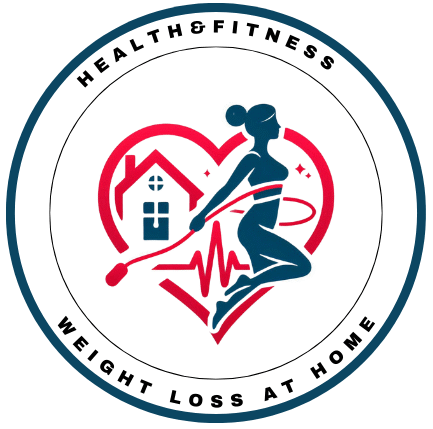If you’ve ever found yourself reaching for cookies when you’re feeling stressed or grabbing chips during a late-night Netflix binge, you’re definitely not alone. Emotional eating shows up for loads of people, and understanding why it happens (and what to do about it) can make a huge difference in your relationship with food. I’m breaking down the basics of emotional eating, why it feels so tough to shake, and some practical ways to take back control.

What Is Emotional Eating, Really?
Emotional eating is when you use food to deal with your feelings instead of to satisfy actual hunger. That might look like snacking whenever you’re bored, turning to dessert after a rough day, or eating giant meals after a stressful phone call. For a lot of folks, food becomes almost like a coping mechanism—it brings comfort, distraction, or even a little burst of pleasure. But it never really addresses what’s going on underneath the surface emotionally.
Emotional eating isn’t only about sadness (even though “comfort food” gets linked to being down). Happiness, anxiety, frustration, loneliness, disappointment; almost any emotion can trigger this urge to eat in a way that doesn’t feel fully in your control.
Emotional Hunger vs. Physical Hunger
Getting clear about the difference between emotional hunger and physical hunger is one of those things that sounds easy but takes a bit of practice. Physical hunger builds gradually, starts with a rumbling tummy, and usually happens a few hours after you last ate. Emotional hunger? It shows up suddenly. You feel the need to eat immediately, and you probably crave specific foods, often those high in sugar, carbs, or fat.
- Physical hunger: Comes on slowly, starts with stomach signals, and you’re open to different foods.
- Emotional hunger: Hits fast, usually with a craving for something very specific (hello, ice cream), and doesn’t go away even if you fill up.
Ever felt super full but still wanted to keep eating because you were stressed or upset? That’s a pretty clear sign your hunger is emotional, not physical.
Why Does Emotional Eating Happen?
If you’ve wondered why it’s so tough to stop emotional eating, you’re asking the right question. Food can trigger a release of feelgood chemicals in the brain (like dopamine), and over time, you might accidentally wire yourself to reach for snacks anytime things feel overwhelming. Sometimes, people grow up in homes where food is linked with comfort or rewards, making it a go-to response later on.
For others, emotional eating can sneak up after tough life events, ongoing stress, or even regular boredom. It might also be linked with bigger mental health concerns, like depression or anxiety, or just plain old habit. Getting honest about what’s leading up to those “I need cake” moments is a good first step.
Recognizing the Signs of Emotional Eating
Knowing whether you’re emotionally eating can save you a lot of frustration. If you’re not sure, ask yourself these questions:
- Do I get sudden food cravings and need to eat something right away?
- Are my cravings for specific comfort foods (think pizza, chips, or chocolate)?
- Do I keep eating even after I’m full?
- Am I eating because I’m bored, mad, sad, or anxious, not because I’m actually hungry?
- Do I feel guilty or ashamed after eating?
If you’re nodding along to most of these, emotional eating is probably in the mix.
How to Stop Emotional Eating
Stopping emotional eating isn’t about ditching your favorite snacks forever. It’s more about pausing, figuring out what’s really going on, and finding some fresh ways to handle emotions. Here are a few tips that help me and others manage emotional eating more effectively:

- Pause Before You Eat: When you get the urge to snack, try waiting five minutes. Ask yourself if you’re actually hungry or if you’re feeling something (bored, lonely, stressed). This small pause gives you space to check in with yourself.
- Find Other Ways to Cope: If stress or sadness is your trigger, try other comfort strategies; take a walk, journal, listen to music, call a friend, or even doodle. Sometimes just doing something with your hands helps interrupt the habit loop.
- Stock Your Space with Healthy Choices: It’s much easier to turn to fruit or nuts if that’s what’s easy to reach for instead of chips or cookies. Out of sight, out of mind can really work when cravings strike.
- Practice Mindful Eating: Tune in while you eat. Notice flavors and textures, eat slowly, and put your fork down between bites. Eating with intention (and not in front of a screen) helps you enjoy food more and notice when you’re actually satisfied.
- Forgive Slip-Ups: Beating yourself up never helps. Everyone falls back into old patterns sometimes. What matters is noticing it, figuring out what triggered it, and making a different choice next time.
Some people find it useful to talk with a therapist, dietitian, or a support group (like Overeaters Anonymous) if emotional eating feels tough to handle solo. Having accountability or a listening ear never hurts.
How to Overcome Emotional Starvation
Emotional starvation describes feeling emotionally “hungry” or empty, even if you’re physically full. This happens when emotional needs like connection, selflove, rest, or validation aren’t being met. The craving for comfort can turn into a compulsion to eat, but food doesn’t actually fill up that emotional space.
Here’s what helps me (and what research backs up):
- Get Curious About Your Emotions: Slow down and name what you’re feeling. Feelings journals or emotion wheels can help if naming emotions is tricky.
- Build Healthy Support Networks: Sometimes a chat with a friend or counselor can fill up the kind of hunger that food never will.
- Practice SelfCare That Isn’t Food: Pick one thing (like a short walk, a warm bath, or reading) that nourishes you emotionally and swap it in when you notice emotional hunger hitting.
This kind of selfcompassion goes a long way. Recognizing that what you need is care, not calories, makes a real difference.
Why You Might Lose Your Appetite When You’re Emotional
Some people have the exact opposite problem; they find they “can’t eat” when emotions run high. Stress, anxiety, or sadness can trigger hormones like adrenaline or cortisol, which slow down appetite and digestion. This is your body’s way of gearing up for fightorflight. For others, grief or shock knocks out hunger cues completely.
If you lose your appetite during tough times, gentle strategies like making small, nourishing snacks, sipping smoothies, or eating with others can help. There’s no need to force full meals. Focus instead on a little nutrition here and there until your body feels ready again.
Common Challenges and How to Deal With Them
Most people dealing with emotional eating run into practical hurdles. Here are a few (and what helps in my experience):
- Boredom Eating: Set up some go-to nonfood activities you can turn to, like calling a friend or organizing your photos.
- Nighttime Snacking: Try a calming bedtime routine that doesn’t revolve around food. Herbal tea, a good book, and dim lights can make a difference.
- Stress: Movement helps burn off anxious energy. Even a quick walk or stretching session can make a bigger difference than yet another bag of chips.
- Social Eating: Plan ahead for tricky situations, like office parties. Eating a little before you go or bringing your own snack can support your intentions.
RealWorld Examples of Managing Emotional Eating
I’ve seen plenty of folks find new ways to deal with their emotions that don’t involve food. One friend found that any time she felt the urge to snack after dinner, writing in her journal for just five minutes made the craving weaker. Another started a group text with close friends to talk through hard days. Even simple stuff, like rating your hunger on a scale of one to ten before eating, gives you fresh insight and breaks the old cycle.
- Keep a food-and-mood diary: Jotting down your meals and feelings brought new patterns to light I wouldn’t have noticed otherwise.
- Try mindful eating exercises: Apps and online resources offer guided meditations for eating that can help you slow down.
Listening to podcasts, reading books about emotional eating, or even exploring online communities can give you extra ideas and support. Remember, real people handle these struggles daily—there’s no shame in needing extra help or inspiration.
Frequently Asked Questions
How do I know if I’m emotionally eating?
You’re probably emotionally eating if you find yourself suddenly craving specific foods, eating when you’re not physically hungry, or using food to handle your feelings rather than your true hunger. Guilt or disappointment after eating can also signal emotional eating.
How do you overcome emotional starvation?
Emotional starvation responds well to fresh sources of emotional support. Spend time with people you trust, do activities that bring you joy, and treat yourself with kindness. Check in with your feelings often and look for nonfood ways to nurture yourself.
How to stop emotional eating?
Get curious about what’s behind your cravings, pause before you eat, and find alternative activities that offer comfort or distraction. Practicing mindful eating and talking to supportive friends or professionals can also help.
Why can’t I eat when I’m emotional?
Strong emotions like stress or sadness can actually switch off your appetite by messing with hormones in your body. It’s normal for some folks to lose their urge to eat during intense emotional swings. Focus on gentle nutrition and allow your appetite to return naturally.
Takeaway
Learning how to spot and respond to emotional eating is one of the most useful skills you can build for a healthier relationship with food. It’s all about compassion, curiosity, and a little bit of patience with yourself. Small steps really do add up, and there’s always support around if you need it. You’re not in this alone. Remember, each step forward builds more confidence, and there’s no such thing as a perfect approach; just consistent, gentle effort over time.


Recognizing emotional eating in my own life was a game changer, especially after realizing how often I reached for snacks not out of hunger, but as a way to cope with stress or boredom. What helped me most was becoming more mindful – pausing before eating to check in with myself emotionally. Small habits like stepping outside for a few minutes or taking a few deep breaths really helped shift my response to those triggers. It’s a continuous process, but understanding the difference between physical and emotional hunger has made a big impact on my well-being.
Thank you for sharing this—it really resonates. Recognizing emotional eating is such a powerful first step, and I completely relate to reaching for food more out of habit or emotion than actual hunger. I love your idea of pausing and checking in with yourself emotionally; it’s such a grounding practice. I’ve also found that even small shifts, like journaling for a few minutes or drinking a glass of water before eating, can help me reset and respond more intentionally. Like you said, it’s an ongoing process, but building that self-awareness is so worth it. Thanks again for your insight—it’s encouraging to hear what’s worked for others on this journey.
Hi there,
I just read your article “Understanding Emotional Eating And How To Combat It” on busymomshape(.)com and I have to say, I’m truly impressed! The way you broke down such a complex and relatable topic with clarity, empathy, and actionable advice was simply brilliant.
Your explanation of the difference between physical and emotional hunger was spot-on. I love how you provided practical questions readers can ask themselves to identify emotional eating patterns. The tips you shared, like pausing before eating, finding alternative coping strategies, and practicing mindful eating, are so valuable and doable.
I particularly appreciated your compassionate approach throughout the piece. Acknowledging that slip-ups happen and encouraging self-forgiveness is such an important message. Your suggestion to seek support from professionals or groups when needed further emphasizes your genuine care for your readers’ wellbeing.
The section on emotional starvation was incredibly insightful. I haven’t come across many articles that address this aspect of emotional eating. Your advice to get curious about emotions, build healthy support networks, and practice non-food self-care is wisdom that I believe many will find helpful.
Your writing style is engaging, warm, and easy to understand. The way you shared personal examples made the advice feel relatable and achievable. It’s clear that you have a deep understanding of emotional eating and a true desire to support others in their journeys.
This is hands-down one of the best articles I’ve read on the topic. Your expertise, paired with your empathetic and practical approach, makes this a valuable resource for anyone struggling with emotional eating. I can’t wait to share this with others!
Thank you for sharing your knowledge and experiences in such a meaningful way. Your article is sure to make a positive difference in many people’s lives. Keep up the fantastic work!
I’d love to hear more about your experiences with emotional eating and the strategies you’ve found most helpful in your own life. And if you have any additional insights or tips to share, I’m all ears! Thanks again for this wonderful piece.
All the Best,
Eric
This was such an insightful read! I really liked how you explained the difference between emotional and physical hunger. It helped me reflect on my own habits, especially those late-night snack attacks. The tips around pausing before eating and building emotional self-care routines felt doable and realistic. I’ve started trying a “pause and journal” approach, and it’s surprisingly effective. Have you found any specific self-care routines that consistently help curb emotional cravings?
Happy to help 🙂
This was such a relatable and insightful read! I appreciate how you broke down the differences between emotional and physical hunger—it really helped me reflect on my own eating habits. The practical tips, like pausing before reaching for a snack and finding alternative coping strategies, are so helpful. It’s comforting to know that I’m not alone in this, and your guidance makes the journey toward mindful eating feel achievable. Thank you for sharing your experience and advice!
Thank you so much for this helpful post. I could really relate, especially to the part about grabbing cookies or snacks when feeling stressed. It’s something I’ve struggled with for a while, and reading this made me feel a little less alone. I like the idea of pausing before reaching for food and finding other ways to cope. I’m definitely going to try that. I appreciate how you explained everything in such a clear and kind way. This really gave me a new perspective on how to handle emotional eating more gently. Thank you again.
This is a wonderfully insightful post that breaks down emotional eating in a clear, relatable way. I really appreciate how it highlights that emotional eating isn’t just tied to sadness—it can come from any strong emotion, even joy or boredom. The distinction between emotional and physical hunger is especially helpful, and those practical strategies like pausing before eating and finding alternative coping methods feel doable and compassionate. The reminder to be kind to ourselves during setbacks really resonated—progress, not perfection, is the goal. Also, the emphasis on emotional starvation hit home; it’s such an important part of the conversation that’s often overlooked. Whether someone’s battling late-night cravings or struggling with appetite loss during stress, this post offers useful, judgment-free advice. Thanks for shedding light on this topic and offering real-world tips to help people rebuild a healthier relationship with food.
Great one, Aivaras! This was a really helpful read.
I’ve caught myself reaching for snacks during stressful workdays or late at night and always just thought it was a bad habit. But the way you explained emotional hunger vs real hunger finally made it click for me. I love how you didn’t just list symptoms but actually gave practical tips that feel doable – like the 5-minute pause and journaling. Also really appreciate the part about not beating yourself up for slip-ups.
It’s refreshing to read something that doesn’t feel overly clinical.
Wow, thank you so much for your kind words—this truly means a lot to me. I’m really glad the article resonated with you and that the emotional hunger vs real hunger part helped bring some clarity. That’s exactly what I was hoping for—to make things feel more human, more doable, and less about guilt or perfection. We all have those moments of reaching for snacks out of stress (me included!), and it’s totally okay.
This is such an important topic. I’ve definitely had moments where emotional eating showed up in my own life, especially during stressful times or big life changes. What helped me most was learning to pause and ask myself what I was really feeling before reaching for food. Keeping healthier options on hand and finding non-food ways to cope (like walking or journaling) also made a big difference. It’s not about being perfect
It’s about becoming more aware and making small, positive changes over time. Great article and very relatable!
Thank you so much for sharing this—it truly touched me. Your honesty and self-awareness are so powerful, and it means a lot to hear how you turned challenges into growth. You’re absolutely right: it’s not about perfection, but progress. Grateful for your insight and support! 🙂